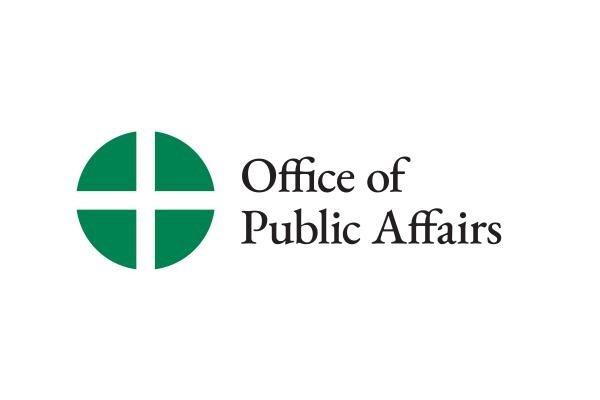USCCB Submits Comments on Proposed HHS Rulemaking, Urges Re-Opening of Final Rule Defining Mandate, Exemption
WASHINGTON—Religious employers andother stakeholders would still have their employee health insurance plans and premiumsused for services they find morally objectionable, even under future governmentaccommodations, according to comments submitted by the General Counsel of the U.S.Conference of Catho
WASHINGTON—Religious employers andother stakeholders would still have their employee health insurance plans and premiumsused for services they find morally objectionable, even under future governmentaccommodations, according to comments submitted by the General Counsel of the U.S.Conference of Catholic Bishops (USCCB) to the U.S. Department of Health andHuman Services (HHS). The May 15 comments outlined the continued objections ofUSCCB to the HHS "preventive services" mandate and urged the administration toresolve these issues "in favor of more, not less, religious freedom."
"We believe thatthis mandate is unjust and unlawful – it is bad health policy, and because itentails an element of government coercion against conscience, it creates areligious freedom problem," wrote Anthony Picarello, USCCB associate generalsecretary and general counsel, and Michael Moses, associate general counsel. "These moral and legal problems arecompounded by an extremely narrow exemption that intrusively and unlawfullycarves up the religious community into those that are deemed 'religious enough'for an exemption, and those that are not."
The comments weresubmitted in response to an HHS Advance Notice of Proposed Rulemaking (ANPRM)on preventive services, which expressed the administration's intention topropose additional regulations in order to establish alternative ways ofensuring contraceptive coverage for employees enrolled in health plans ofreligious organizations not exempted from the HHS mandate while still"accommodating" such organizations.
The USCCB commentsnoted that such an accommodation would only apply to some religiousorganizations and that it "would still leave their premiums or plans (or both)as the source or conduit for the objectionable 'services.' But the use ofpremiums and plans for that purpose is precisely what is morally objectionable,and having an insurer or third party administer the payments does not overcomethe moral objection." The comments concluded that, "under the terms set out inthe ANPRM, the 'accommodation' cannot provide effective relief even for thosefew stakeholders that qualify for it."
The commentsoutlined six points:
First, the ANPRMdoes not change the fact that contraceptive services are included in the listof mandated preventive services. This has remained unchanged from an earlierregulation announced in August 2011.
Second, the ANPRMdoes not change the administration's criteria for defining "religiousemployers" exempted from the mandate, an exemption that USCCB calls "unprecedentedin federal law, improperly narrow, and unlawful." These criteria include thatemployers primarily hire and serve only members of their own religion.
Third, manystakeholders in the health insurance process—religious and secular insurers,religious and secular for-profit employers, individual policy-holders, andothers—with a conscientious objection to the mandate are completely ineligiblefor the exemption. The ANPRM does not acknowledge or address this problem, andas a result, those stakeholders "will be required in the next few months eitherto drop out of the health insurance marketplace, potentially triggeringcrippling penalties, or to provide coverage that violates their deeply-heldconvictions."
Fourth, while theadministration has invited public comment on some further "accommodation" for certainnon-exempt religious organizations, secular stakeholders will receive no suchaccommodation. "We believe that the contraceptive mandate violates the religiousand conscience rights of these stakeholders as well and is unlawful."
Fifth, regardlessof the definition of "religious organization," the central problem remains,that "conscientiously-objecting non-exempt religious organizations will stillbe required to provide plans that serve as a conduit for contraceptives andsterilization procedures to their own employees, and their premiums will helppay for those items." The administration has invited comment on differentapproaches for how to deal with a self-insured employer, but "none of them willsolve the problems that the mandate creates for non-exempt religiousorganizations with a conscientious objection to contraceptive coverage."
Sixth, the ANPRMraises new questions such as whether employers must be independently exempt fortheir employees to participate in an exempt plan, whether religious objectionto some, but not all, contraceptives should be accommodated and whether a pastpractice of mistakenly or unknowingly covering contraceptives should disqualifyone from accommodation.
"In each case, weurge resolution of these questions in favor of more, not less, religiousfreedom," Picarello and Moses wrote.
The full text ofthe comments is available online: www.usccb.org/about/general-counsel/rulemaking/upload/comments-on-advance-notice-of-proposed-rulemaking-on-preventive-services-12-05-15.pdf
---
MEDIA CONTACT ONLY:Don ClemmerO: 202-541-3206Email
